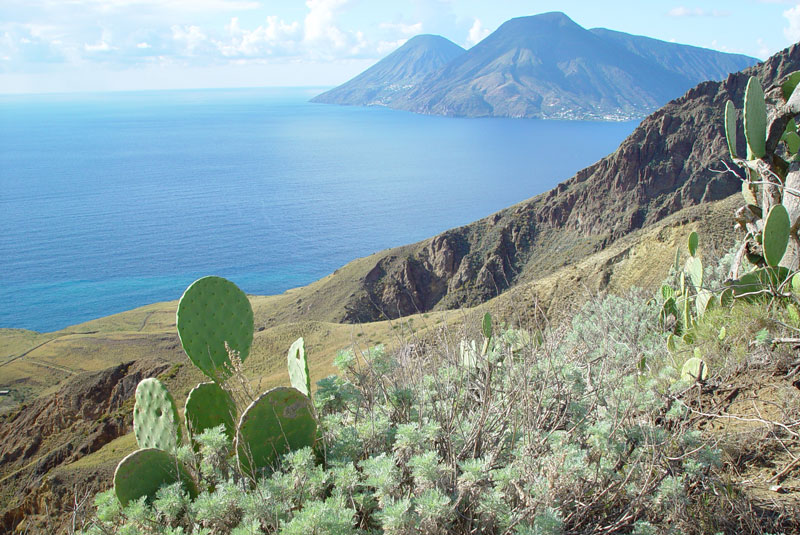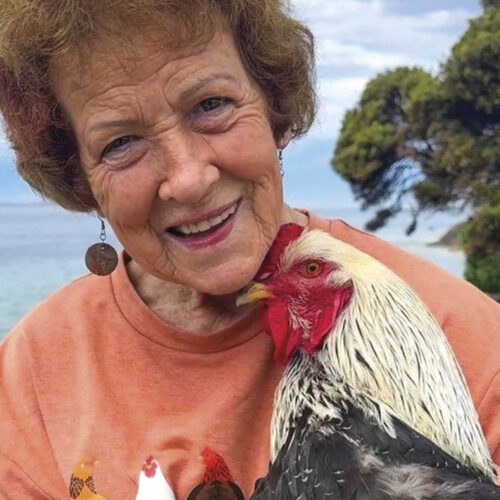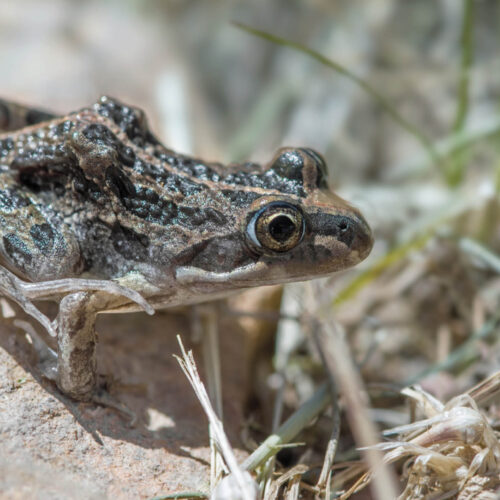Lessons from Nino
2009-12-22T02:27:49+11:00
Marc Llewellyn, the author of Finding Nino - a Seachange in Italy, reveals how an Italian peasant farmer sparked his love of organic gardening.
Sometimes it pays to ask yourself: ‘Do I want an ordinary life or an adventurous life?’ You could just as easily apply this question when considering whether or not to drop out of the rat race and go and live on a remote Mediterranean island, or to take a stand against agricultural chemicals and blandness by producing your own fruit and vegetables.
I’ve been fortunate to have done both of these things. And, it was amazing how taking time out had such a major influence on my decision to become an apprentice organic gardener.
Lessons I learned in Sicily
Before I left Australia with my wife Rohan, newborn baby and large dog to live on a small island off the north-east coast of Sicily for a year, I thought nothing of eating battery farm eggs and cheap chickens. I was a man who bought things out of season and didn’t know any better. I came back changed for the better.
My transformation was mostly thanks to Nino, a ebullient peasant farmer who worked his fields on Lipari, the largest of the Aeolian islands. Despite being nearly 70, he was strong and fit, and shone with optimism. I often suspected that all he needed was his health, the soil, the rain, and the progress of his seeds to be happy.
Nino took me under his wing, and together we dug for potatoes, garlic, and onions. We picked beans and peas, capers, olives, pumpkins, and zucchini. We ate prickly pears and plums, and almonds, figs and pomegranates straight from the tree. We crushed grapes by foot to make wine, helped the extended family make hundreds of bottles of tomato passata sauce, and baked masses of bread in a huge indoor wood oven that helped to keep the house warm in winter.
We picked our own basil from kitchen gardens, and hunted for pine nuts up in the hills. There were artichokes, lemons, eggs and free-roaming chickens. There were wild rabbits, and ones grown in cages and fed hay made from spring flowers and grasses.
The only chemical Nino used was Bordeaux spray on his grapes. He rotated his crops. He used natural fertilisers. He suffered losses to insects and birds, but he knew that he had to plant for them as well as his family. It was always like this, from the time man started farming, he would say.
What Nino couldn’t grow or find in the wild, he bartered for with his excess produce. If he needed petrol for his three-wheeled farm vehicle, he’d exchange eggs and rabbits with the owner of the local service station. A sickle wanted sharpening? A metal worker got a lapful of onions. A prompt referral to a specialist in Sicily should the need arise? A bag of salted capers for the local doctor in advance.
We were invited to share meals with Nino and his wife on many occasions. I remember our first together. It was a mound of spaghetti, topped with chunks of last night’s boiled potatoes, and a few fibrous artichoke leaves. It was genuine, frugal cooking made from local produce that came and went with the seasons. Each mealtime we spent with them served to deepen my understanding of Nino and his family. And slowly I began to learn that there was no act more gratifying or more liberating than coaxing food from the earth. The rhythms of nature were the ultimate template by which Nino and his family lived, and it felt right that we should follow them too.
Finding a home
When we decided to head home to Australia, we were reinvigorated and determined to put the things we’d learnt into practice. After months searching we finally found a home in a typical seachange suburb south of Sydney. The house was a simple one-level fisherman’s shack with a pot-bellied fireplace for cold winter nights, and a water tank out the back.
I started on the garden at once. I planted several varieties of citrus. I set up a vegetable garden, and used mail-order heritage seeds. After all, life doesn’t have to be routine. I built a chicken coop and bought three baby chickens from a school show. I searched out some stone pine seeds too, to plant alongside a couple of grape vines. I received a caper plant and some tomato seeds in the post from Nino’s relatives living in Melbourne. They were the progeny of plants smuggled in to the country in less enlightened times.
I remember the enormous pleasure I felt when our first crop of lettuce and rocket was ready. We had just sat down to lunch in our garden with some family members. Those present still talk about the day I wandered over to the vegetable patch and reappeared with a bowl of highly-aromatic greenery chewed by cabbage white caterpillars. The experience was a revelation for them.
There have been some dismal failures of course, but I put them down to the learning process. I watered my zucchini plants in the heat of a summer afternoon by spraying them carelessly. I got mildew for my troubles. I didn’t know at the time that I could solve this problem by spraying the leaves with milk, or diluted boiled chives.
I killed off two mandarin trees by coating their leaves with white oil. Apparently, they can be quite sensitive. I should have used some vegetable oil mixed in with dishwashing liquid instead. And as for aphids, those little suckers almost did me in. Until I discovered diluted, boiled lantana. The two-day withholding period was worth it to see them gone at last.
My baby chickens turned out to be cockerels, so they were sent packing to a good home outside city boundaries. Their replacements now provide as many eggs as we need. And they help with the gardening by turning our household scraps into manure and raking the compost heap. My vegetable patch doubled after one year, and tripled in size just recently, eating heavily into the lawn. I grow a large range of heritage vegetables, and all the herbs and chillies we need.
Recently, I even used the no-dig method by planting potatoes inside rounds of chicken wire. Each spud returned some 20 or so new tubers. Talk about a good return on an investment! I have rarely felt so proud.
The goat block
Not content with your average-size house block, we decided a while ago to buy a few rough acres of goat-ravaged land in the countryside as well. I began tackling my weekend project with enthusiasm. I quickly and inadequately prepared the bone-dry clay for some bare-rooted fruit trees. I then watered them lovingly with brown murky liquid lugged from the yabby dam.
It didn’t take long for wild goats, kangaroos, rabbits, and the drought to combine to kill them all. Even the olive trees, which were there when I bought the land, were doing it tough. They were six years old apparently, but still barely came up to my waist.
Still, I persevered. I improved the fencing, and pre-primed my planting holes with manure, fertiliser, and gypsum. I used bags of dried-up manure from the goat shed as mulch. I bought fruit trees in pots, suspecting they might have a better start in life.
It seems to have worked. Last autumn, two years after planting, we harvested a dozen Pink Lady apples and a few Red Delicious. Eaten straight off the tree they were remarkably tasty and sweet. It was interesting to notice that after a few day’s storage they were as boring as those you buy from a supermarket.
This summer brought my first apricots. They were scabby and pimpled but melted in the mouth with a deep luscious apricot taste. Next year I’m hoping for cherries, nuts and plums too. None of my trees are irrigated, apart from a half bucket of water every month or so during the heat of summer. All of them seem to be strong and healthy though.
I remember so vividly the many meals we had on the island of Lipari using produce we’d picked ourselves in return for helping Nino out in the fields. One lunchtime saw us tucking into a chunk of Piacentinu, a sheep-milk cheese flavoured and coloured with saffron. There was a handful of small salted capers; oregano leaves torn from their stems just minutes before; a lemon from Nino’s tree; some local olive oil, pungent and green; and clusters of wrinkled tomatoes from Nino’s barn, where they’ve been hung all winter to air. Easy meals like these, with a glass wine and a clump of bread, were all we needed on a slow afternoon like that.
And then there was yesterday. A quiche made with our own eggs, Black Russian tomatoes and basil. Also on the table were our King Edward and Nicola potatoes, boiled and simply sprinkled with salt. And a green salad produced from seed I saved last year. All this accompanied by homemade mulberry wine.
It was the latest stopover in a journey of culinary adventure that constantly keeps me shaking my head with the wonder of it all.
Finding Nino: A Seachange in Italy (HarperCollins).






